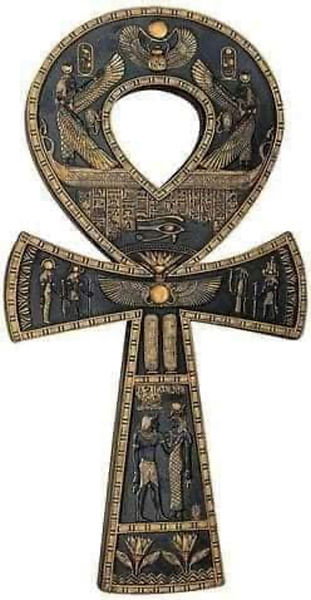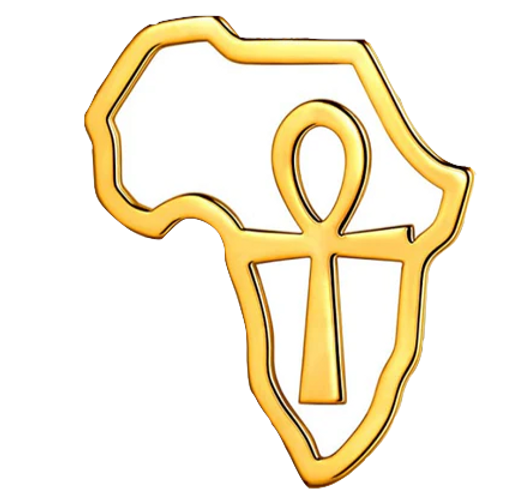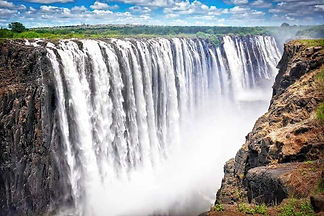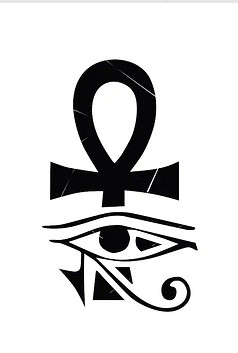African Spirituality,History and Culture




The World And Africa
The world is 4.5 billion years old yet some Christians believe that the world is only 6 thousand years old, there is some people who actually put out that belief. Looking at the facts based on science, it is accurately known that the world is 4.5 billion years old. Human beings called homo sapiens sapiens have only been living on this planet earth for 300 000 years. Based on scientific information, we know that Africans were the first human beings on earth. Africans left Africa and began to spread worldwide 60 000 years ago, out of Africa east into Asia and populated Asia. They also say that 40 000 years ago, Africans migrated out of East Africa into Western Asia, the land which is now called Europe and populated Europe, which means the first human beings in Asia were Africans 60 000 yrs ago and the first Human beings in East Asia or Europe 40 000 yrs ago were also Africans. This is now an accepted fact, scientific fact, genetic fact and historical fact, facts speak for themselves. They have identified the African genes which mutated and became non-African fino type/non-African skin colour, in other words, Africans lost their melanin and became white 8000 years ago, and Africans mutated into Europeans 8000 years ago. If Africans as Homo sapiens sapiens have lived on this planet for 300 000 years and developed all the documents of civilisation known to mankind throughout the continent, and the people who now control the narrative of history, culture, civilisation and religion are people who have only been on this planet for 8000 years ago
Who Were The Africans
Who were the Africans, and what have they done?
Before the birth of the Roman Empire, the name "Africa" never existed. What existed was a continent on the south of the Mediterranean with thousands of tribes of people.
It is important to note that at the time, Romans called that region "Africa", Greeks called it "Libya" while the region of black people within the continent was called "Ethiopia" (meaning "Land of the Dark-skinned"). Centuries later, with the Portuguese exploration, most parts of the Sub-Sahara (especially present-day West Africa) were named "Guinea".
With the European age of exploration and openness to scientific facts, there came the idea of calling continental lithospheres with one name: they debated between Africa, Libya, Ethiopia or Guinea. The name "Africa" won the debate, and the Europeans named this continental landmass "Africa". And African became every inhabitant of the landmass, whether a black Wolof, light-skinned Fulani, brown Arab or white Afrikaans.
So, Africa is just a proper Noun for the second-largest landmass on the planet. It is a heterogeneous continent of different people with different cultures. Africa is not one people. In today's world, an African is anybody that chooses to identify with one or more cultures of the people of Africa.
Using the timeline which documents your history and where you're in history, and history is the clock that you use to tell your political, cultural and spiritual time of dates. If you can't find your history, your culture or your God concept within your own historical time frame, you are a lost soul. Starting with Nile Valley, we look at the history of Kemet, which goes back to about 3200 BC. Greece became a nation-state in 832 BC. Rome became a nation-state in 753 BC. Greek and Rome culture and civilisation is the foundation upon which European history and culture stands, developed between 832 and 753 BC. In contrast, African civilisation in Kemet has explicitly been documented to 3200 BC, so Africa is 3000 years head start.
Africa Work Up
The Bible is now the most significant instrument in creating false industries in the whole continent of Africa. That is not to be celebrated, it is to be frowned upon, and most of those who claim to be Christians, whether they are really Christians or not, it’s another debate and they will only discover that a little later after death when they go to heaven. Therefore, when we're discussing paramount history about rediscovering, demystifying and disseminating our true African spirituality to Africans around the world, we say it was once discovered and got distracted, disturbed, stolen and was completely abolished by the coming of christianity. However, let us situate the Bible in its proper place and its rightful owners are Europeans, not Africans. Christianity, as we know it today in the continent of Africa, was midwifed to us Africans by Europeans through force and through the missionaries. When they came, they were reading the same bible we’re reading today. Furthermore, when they set in Berlin and were dividing the continent of Africa, they were reading the same Bible that we’re reading today. They came to Africa when they had already learned and divided the body of their Christ to themselves. The English had appropriated the religion in 1534 which they named Anglican Church complete with a monarch as its head. The Scots had appropriated their own and they named it Presbyterian Church, the Greeks had their Greek orthodox, the Arminians had the Arminian orthodox, and the Roman Catholics were even bolder they even called it The Roman Catholic Church, So that even when they were in Zimbabwe it won't be called the Zimbabwean Catholic Church it will still be called the Roman Catholic Church wherever they invaded and evaded. It's so funny that you hear Zimbabweans saying they are Roman Catholics while they’re born, raised and living in Zimbabwe. South Africa, in apartheid, had a Dutch-reformed Church, which became a foundation stone upon which apartheid was articulated in 1948 by Hendrix Fafoot and his cohorts. The Bible brought treason to Africans. It has been used to convert Africans from their true spirituality to fake Christianity and to support slavery. Adding to that, the bible has been used to indoctrinate, repel and to colonise Africans. The Bible was used to pervert the truth. That is the Bible that Africa is in so much love with. It's time for Africa to rise, work up and invoke its original roots and culture now.
The Mutapa Empire From the Time of Mwenemutapa, Gatsi Rusere's Reign, Until the Rise of Changamire Dombo.
It was thought that Gatsi Rusere was a usurper from the Nyandoro House of the Mutapa Royal Dynasty. The Nyandoros were the Mukomohashas / Army Generals of Mutapa. During the reign of Mwene-Mutapa Gatsi Rusere (1585 - 1623), in 1597, two groups of Zimba-Maravi people crossed south of the Zambezi and entered Mutapa territory. They were led by Kapambo and Chikanda. Some of the Maravi offered to pay tribute to emperor Gatsi Rusere, but Gatsi Rusere ordered his general, known as the Mukomohasha, to defeat the Maravi, and conquer their homeland. The general went to war against the Maravi and drove them north across the Zambezi. However, the Mukomohasha could not conquer Maravi and capture Kapambo, who took flight. This was because the fleeing Maravi would burn their villages and supplies as they ran away from the Shona-Karanga warriors.
When the army general (Mukomohasha) returned to the Mwene-Mutapa, he was asked by the emperor why he did follow up on his victory on the Zimba and conquered their whole homeland. Not pleased with the response, Mwene-Mutapa Gatsi Rusere then had his own general executed. The Mukomohasha was an essential figure in the empire of Mutapa. He was a member of the great council and a leader with significant influence. The people had great respect for him, and when he was executed, the people of Mutapa revolted against the emperor. They ousted Gasti Rusere from his own Zimbabwe in 1606. However, 3 years later, Gatsi Rusere reclaimed the Mutapa throne with the help of the Portuguese. Mwene-Mutapa Gatsi Rusere then gave the Portuguese more power within Mutapa as a reward for helping him reclaim his throne from Matuzianhe, his relative and rival for the Mutapa throne. Later, after learning about how the Portuguese were bringing in people from north of the Zambezi and turning them into their slave armies known as Chikunda, Gatsi Rusere’s mind changed. He was now against the Portuguese and their religion taking a foothold in the Mutapa region.
In 1610, Mwene-Mutapa Gatsi Rusere (1589-1623) punished the Portuguese by imposing a mupeto, or forcible confiscation, throughout Mutapa. This was caused by the Portuguese’s refusal to pay the curve / tribute. Portuguese traders were raided, many foreigners were killed, and their goods were seized, including those of the Portuguese warlord, Madeira. Five years later Mwene-Mutapa Gatsi Rusere sent a combined Shona-Karanga and Lower Zambezi Tonga (Barwe-Sena) army which annihilated a Portuguese force that, looking for silver near Chicova, had shot the son of a local chief. In 1616, the Portuguese in the town of Tete only escaped death by Gatsi Rusere’s army by hurriedly paying a ransom of cloth. Mwene-Mutapa Gatsi Rusere was succeeded by his son, Mwene-Mutapa Nyambo Kapararidze.
After the death of his father, Mwene-Mutapa Nyambo Kapararidze (1623 - 1629) worked to fulfil Gatsi Rusere's goal of ridding Mutapa of the Portuguese and their foreign religion. However, the Portuguese supported and influenced a converted Mutapa prince, Mavhura Felipe Mhande, to fight against Mwene-Mutapa Nyambo Kapararidze for the throne. Mavhura was the son of Mwene-Mutapa Negomo Mupunzagutu; thus, he was also a rightful heir to the Mutapa throne.
(Civil Unrest Within the Empire of Mutapa)
Mwene-Mutapa Nyambo Kapararidze was no puppet of the Portuguese, and he had defeated 300-400 Portuguese forces along with 6,400 of their armed African slave soldiers in 1631. In response, his half-Christian rival, Mavhura Phelipe Mhande, challenged him with support from the Portuguese. Mavhura was one of the Mutapa princes who could read and write well, but many Mutapa citizens did not support him because he was educated by the Portuguese. Mavhura Phelipe Mhande then claimed to have had 'a vision of light and a cross in heaven', helping him assemble an army of 40,000 men, including many Maravi warriors from north of the Zambezi, and Portuguese gunmen along with their Chikunda slave armies. Mavhura's forces would eventually fight Nyambo Kapararidze's forces.
35,000 people died in the battle between Kapararidze and Mavhura, who were mainly on Kapararidze's side. They fought again and Nyambo Kapararidze's forces lost with about 12,000 casualties in one battle. Mavhura took over as the new Mwene-Mutapa, however, Kapararidze would retreat north of the Zambezi and threaten Mavhura for the next 20 years. Because of his reliance on the Portuguese guns and their slave armies, the Portuguese made Mwene-Mutapa Mavhura their puppet. Mavhura died from accidental gunshot wounds in 1652.
When the Portuguese made Mavhura their puppet, they angered the Barwe-Sena / Lower Zambezi Tonga population of the empire and many of the Shona-Karanga people. The Portuguese warlords and prazo owners violently took many lands from the indigenous people of the Mutapa region. They even assassinated Mwene-Mutapa Siti Kazurukamusapa after 10 years of his rule. The Mutapa empire was actually weakened and reduced in size when the Portuguese expanded their influence in the land, forcing the once loyal provincial rulers to disobey the emperor.
However, a Mwene-Mutapa named Kamharapasu Mukombwe (1663-1692) successfully drove back the Portuguese from several lands in Mutapa and managed to resettle various Mutapa families in the lands he had freed. For this, he was given the praise names, Maguranyika/Goveranyika/Banguranyika/Ganyiri, meaning ‘The Divider of the Land’. Mwene-Mutapa Mukombwe reunited the Sena-Barwe / Lower Zambezi Tonga, and the Shona-Karanga under the Mutapa empire, and fought the marauding Portuguese with their aid. Even the Provincial Rulers, such as Makombe of Barwe, and Chikanga of Manica, paid tribute to Mwene-Mutapa Mukombwe and submitted to his authority. Mukombwe and his subjects followed the Karanga traditions, however, some of the Shona/Karanga people were still not happy with Mavhura and his successors’ decisions, and so they continued to fight for their land with or without the Mwene-Mutapa's approval.
Civil war raged in the empire of Mutapa until a man related to the Mwene-Mutapa, through the Changamire lineage, named Changamire Dombo, appeared and quelled these wars with his fierce army known as the Rozvi. This event is said to be the actual very first Chimurenga, and it resulted with the Rozvi bringing peace to the region of Karanga or Mutapa. Although the Mutapa dynasty survived, the Mutapa empire now had to share its territory with the Rozvi empire.




